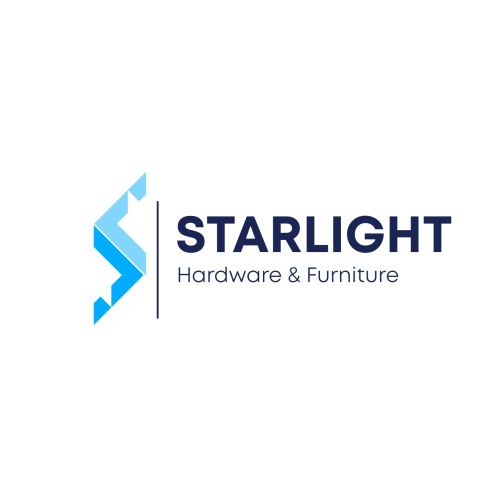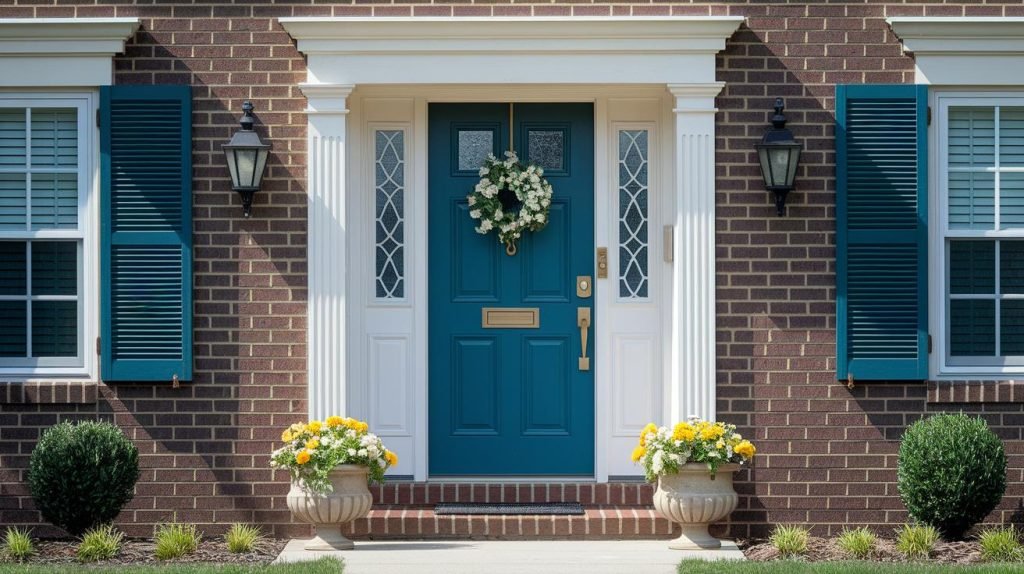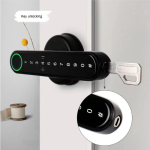Could your front door be throwing a party for burglars?
Hmm, scary thought. Um, we don’t want that, right?
That’s where remote access locks (smart locks you control with your phone) come in. You trade your old lock’s smooth metal faceplate for a gadget that feels like science fiction, but it’s actually your new best barrier against unwanted guests!
These locks give you real-time alerts, a reassuring click when they snap shut, and encrypted keypad codes (a digital pin pad that uses a secret number series). They even add a soft LED glow to guide you in the dark. You carry safety in your pocket.
In this guide, we’ll walk you through five simple safeguards to turn any deadbolt into a high-tech guard. You’ll learn how to check your lock status, share temporary codes, and wave off midnight intruders – even from miles away.
Let’s get started.
Key Factors for Residential Door Lock with Remote Access
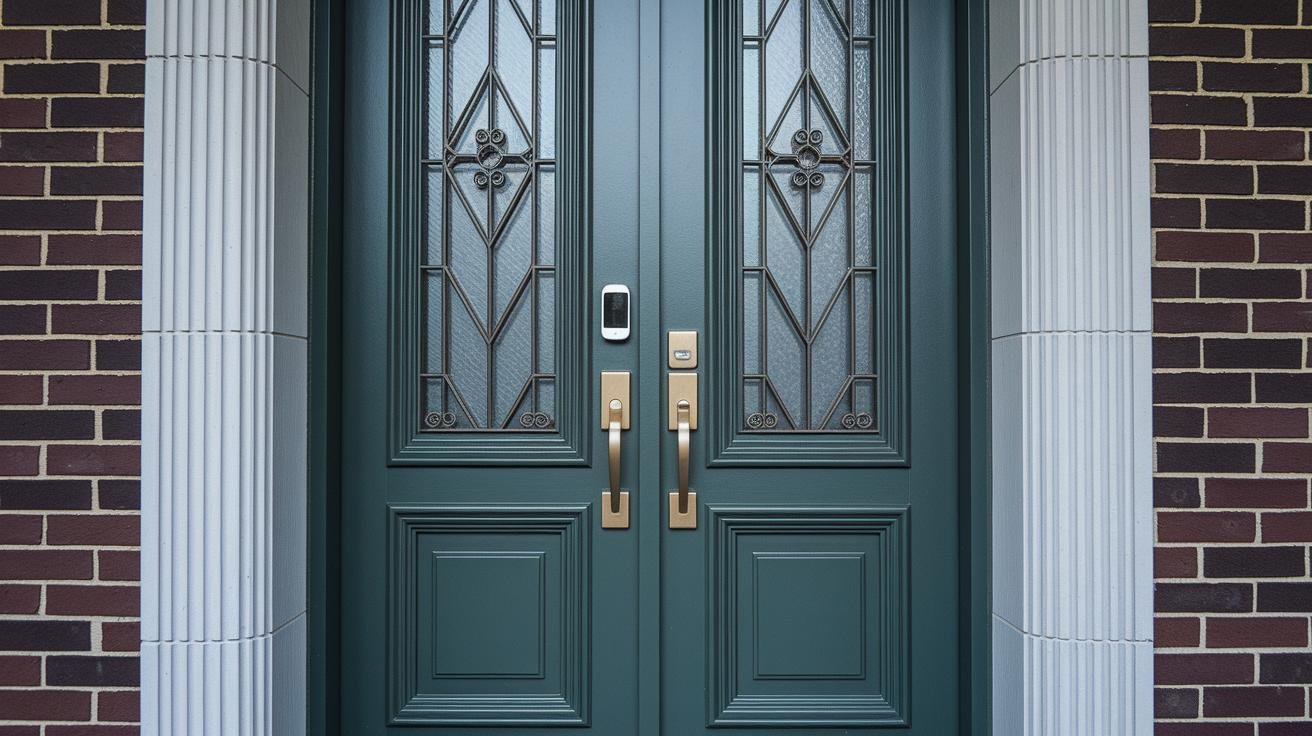
Choosing a remote-access door lock is like hiring a guard for your front door. You want someone sturdy, smart, and fast.
Start with the hardware. You can fit a full deadbolt replacement into your existing hole. Or add a deadbolt adapter (an extra sleeve that grips your current bolt). A lever-handle swap gives you a sleek lever instead of a knob, no door frame changes needed. Each option has a smooth metal faceplate and a reassuring click.
A keyless entry lock with ANSI/BHMA grading (a quality score by the American National Standards Institute and Builders Hardware Manufacturers Association) plus tamper-evident alarms can warn you if someone tries to jimmy the bolt.
Here are six factors to weigh when you shop:
- Hardware type: full deadbolt replacements, deadbolt adapters, or lever-handle swaps that fit right into your door’s pre-drilled holes.
- Encryption standard: AES 128-bit encryption keeps wireless signals safe, like swiping a credit card, but private.
- Connectivity protocol: Wi-Fi for remote reach, Bluetooth for quick in-range use, or Z-Wave and Zigbee for low-power backup.
- Unlocking methods: PIN codes, fingerprint scans (a reader that checks your unique fingertip pattern), tap-to-unlock, geofencing, or your smartphone app.
- Companion app features: real-time notifications, guest codes, access scheduling, and easy firmware updates.
- Brand trust: no third-party data sales, commercial-grade durability, and clear certification.
A rock-solid smartphone app can be a game-changer. Starlight’s interface is clean and friendly. It walks you through adding users, setting auto-lock timers, and checking lock status. Want to know a secret? Our auto-lock mode saves you from wondering if you locked the door.
If you’re working with a reliable OEM, check out smart lock manufacturer China for wifi-enabled front door lock options. They blend vault-like toughness with a soft LED glow on your phone screen.
Peace of mind.
Security Protocols and Connectivity in Remote Access Door Locks
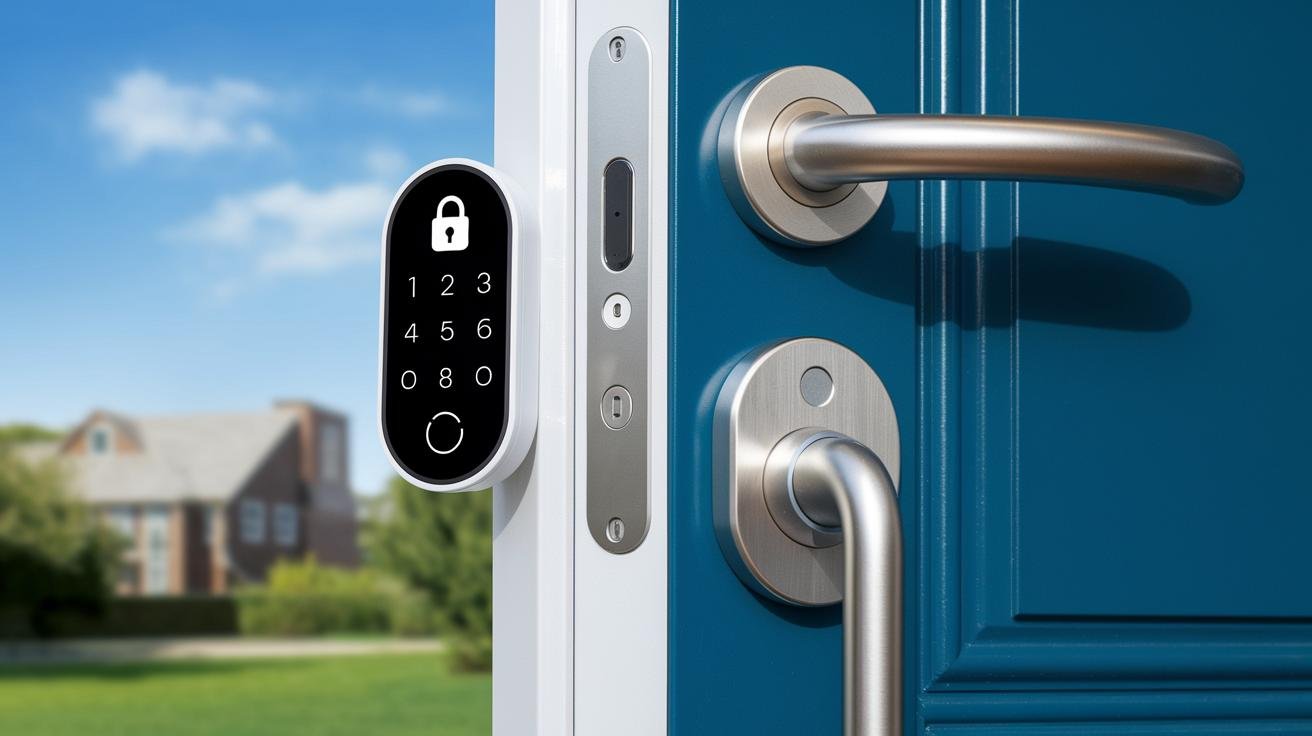
AES-128 encryption (a 128-bit key cipher) is the gold standard for smart locks. It turns every wireless message into pure static so anyone snooping nearby only hears noise. When you tap “unlock” from afar, the same encryption keeps your access request under wraps, no peeking allowed.
Starlight locks also use two-factor authentication. First, you open our app. Then you enter a PIN or use a biometric fingerprint sensor (a reader that checks your unique fingertip pattern). Finally, our cloud service gives a thumbs-up. This multi-stage check beats a lone password every time. Want to know a secret? It’s like having a deadbolt, a guard dog, and a watchtower all at once.
Locks undergo ANSI/BHMA grading to prove their muscle. Grade 1 models stand up to serious force, drilling, and torque, you’ll feel a reassuring click, even under a wrecking test. Grade 2 fits most homes, blending strength with style. Grade 3 covers basic security needs. All grades mean reinforced deadbolts and a smooth metal faceplate you can trust.
Our companion app hooks into tamper alarms that spot forced entry or shim attempts. The moment something feels off, you get a push notification. Then your phone shows a soft LED glow, security at a glance.
Installation and App Setup for Residential Smart Door Locks
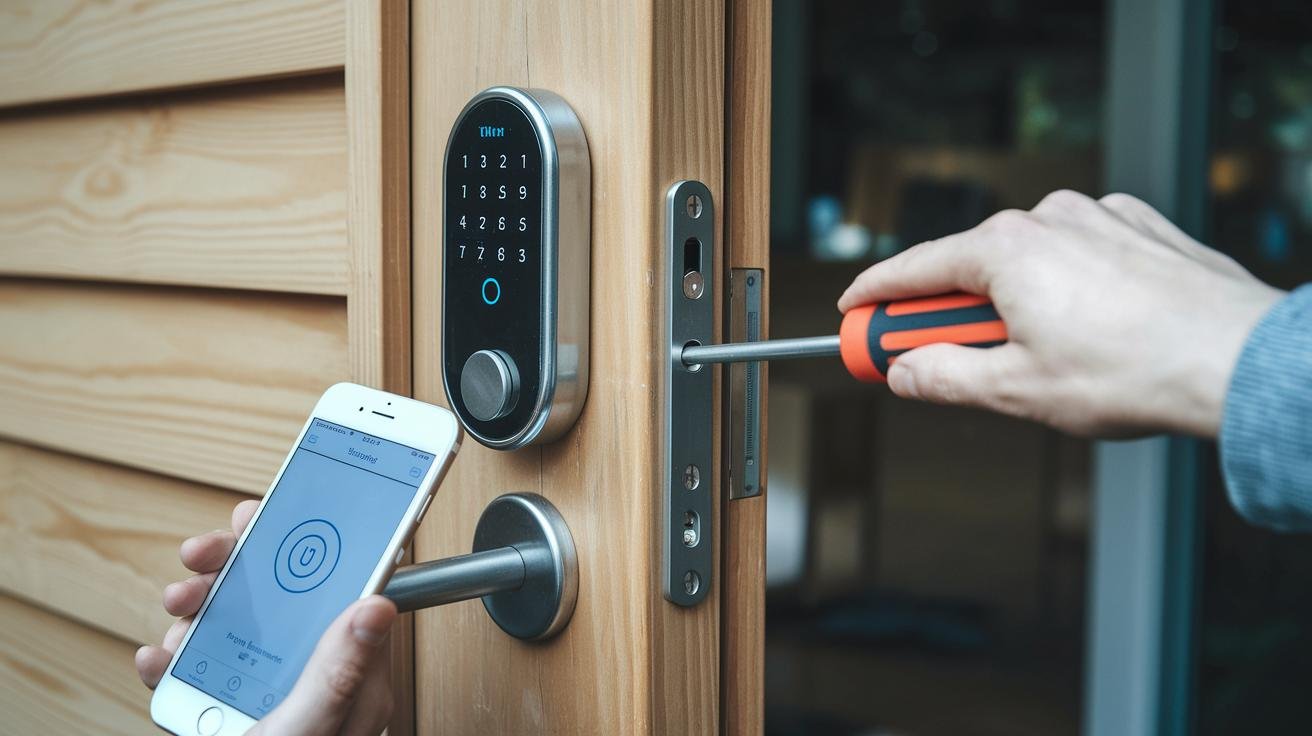
Most electronic door locks slide into place in 10 to 25 minutes with just a Phillips screwdriver. Full deadbolt swaps come with restraining clips (small guides to keep your lock aligned) or door sensors (tiny switches that spot your door’s position), and you’ll feel the smooth metal faceplate and hear a reassuring click when it snaps in. Retrofit kits like adapter sleeves (thin metal rings) let you upgrade without replacing your entire lock. Starlight’s DIY kits fit right into pre-drilled doors and snap the Wi-Fi module (a small radio that links your lock to the internet) into place, and you can check out smart lock for residential construction to see how quick upgrades can be.
Sometimes a tricky door frame or precise strike plate (the metal plate your bolt slides into) means you need a pro installer. A locksmith can drill new holes, add metal reinforcement, or build a custom mortise (a recessed cavity in the door). Adapter kits like the Yale Approach need an external hub (about $55) and exact wiring to keep your Wi-Fi connection steady. Even with pro help, you’ll save on labor because most mounting is modular and uses simple screws.
Pairing and setup happen in your lock’s mobile app (the door lock user interface). It walks you through secure Bluetooth pairing (think connecting headphones to your phone). Then you can add users, set geofencing zones (virtual boundaries that lock or unlock doors), schedule auto-lock times, and see battery status, tamper alerts, and firmware updates in one clean dashboard. You’ll be handing out temporary codes to guests in minutes with zero training, all under a soft LED glow.
Comparing Price and Battery Performance of Remote Access Door Locks
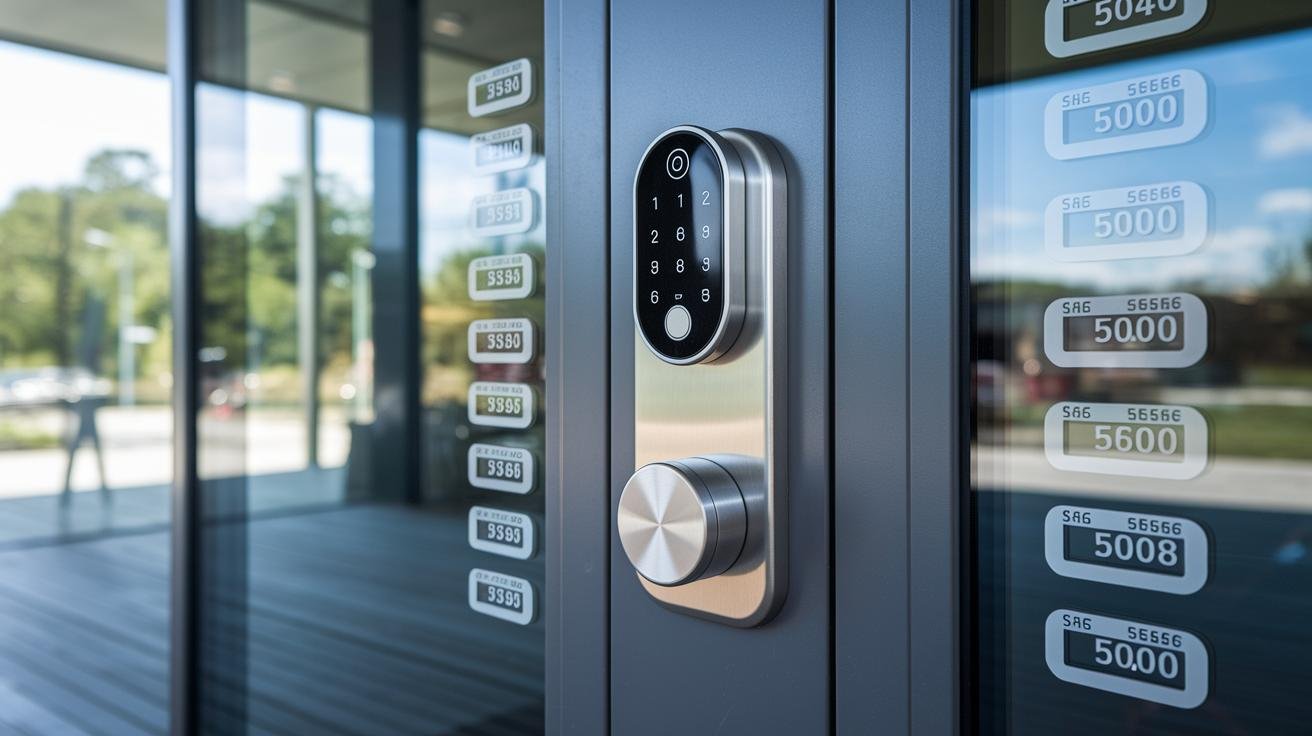
Looking to upgrade your door lock on a budget? Entry-level Bluetooth (short-range wireless tech) models start at about $100. They open with a tap on your phone or a swipe at the keypad.
Solid.
Built-in Wi-Fi (wireless internet) locks live in the $150 to $200 range. Take the Schlage Encode Smart WiFi Deadbolt. It has a smooth metal faceplate and a soft LED glow. And it runs six months on four AA batteries, plus an emergency USB port for those just-in-case moments.
The Yale Approach Lock needs a hub too, which adds about $55. That brings the total close to $200. It uses four AA cells in the keypad. The hub just plugs into the wall for constant power.
Ultraloq Bolt Fingerprint (a reader that checks your unique fingertip pattern) costs under $150. Its rechargeable battery pack can last up to three months if you use the lock a lot. But some customers note it drains faster in real-world tests.
Our mid-range Starlight lock lands at $149. It feels solid when you press the pin pad.
We’ve tested it in sandy deserts and snowy peaks. You’ll get about nine months of runtime per charge and low-battery push notifications in the app. Want to know a secret? I love that feature.
Battery life really comes down to power source and how often you lock or unlock. AA batteries are easy to swap every six months. Rechargeable packs can dip sooner under heavy use. And wall-powered hubs run nonstop without battery worries.
Think about your routine before you buy. Will you mind changing cells twice a year? Or do you prefer a long charge and a quick app alert? Choice is yours.
Troubleshooting and Maintenance Tips for Residential Remote Door Locks
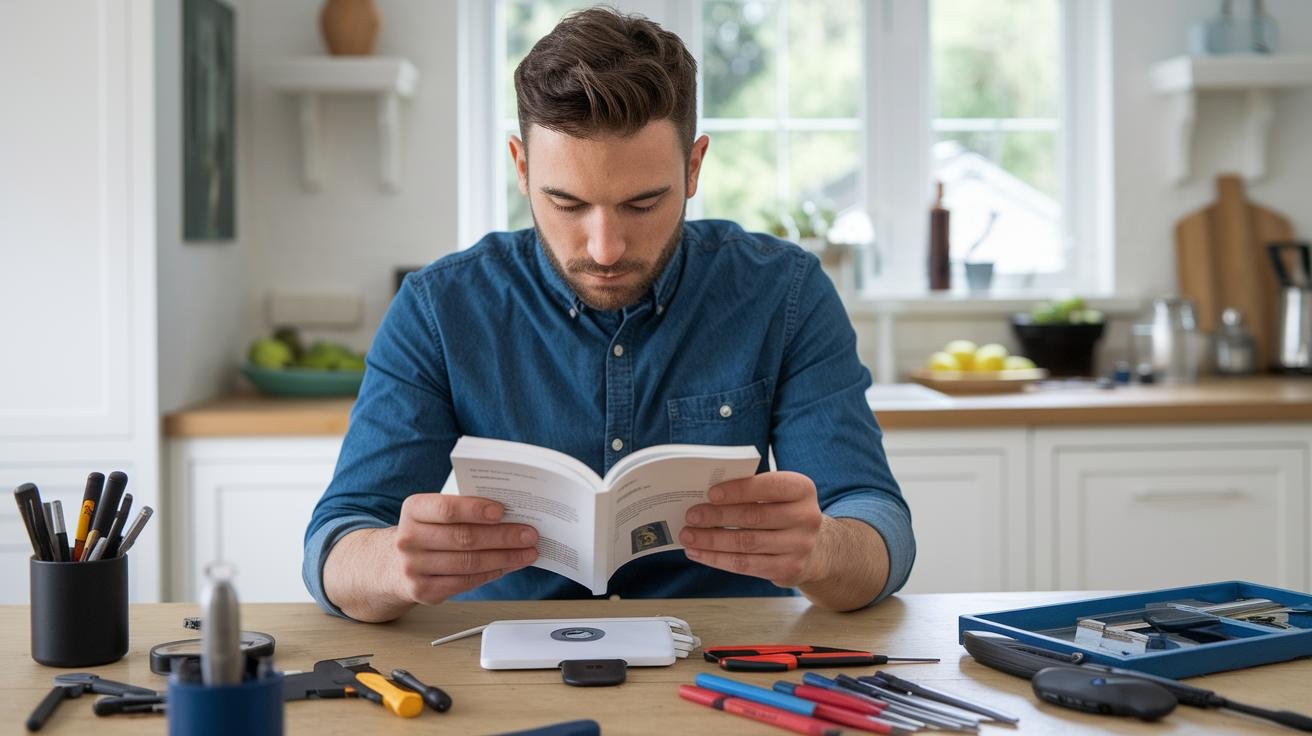
Bluetooth drops right when you’re opening the door? Nothing worse than standing in the rain staring at your lock’s soft LED glow flicker. Low battery alerts often look like a dead signal. Um, first check your power level and signal strength.
If your battery reads under 20%, swap in fresh alkaline cells. The lock’s smooth metal faceplate will light up more brightly. Next, do a factory reset by holding the interior reset button (a small pinhole switch inside the lock) for ten seconds. This reboot clears stale links.
Then re-sync via Bluetooth. Think of pairing like connecting headphones to your phone. Only after that, try the Wi-Fi controls.
Firmware updates keep your lock in sync with the cloud. Open the companion app’s settings each month and apply over-the-air patches (wireless software fixes). If downloads crawl, you might have weak home Wi-Fi. Try a Wi-Fi analyzer (a tool that maps your signal bars) or slide your router closer to the door!
Still stuck? Starlight’s remote reset feature and guided in-app diagnostics take you through error codes step by step.
Regular upkeep keeps things smooth. Every few months:
• Clear dust from electrical contacts (the metal tabs that meet the batteries)
• Tighten the mounting screws that hold your lock in place
• Test the manual key override (your backup metal key)
• Wipe the keypad faceplate free of grime and water
Solid. These tips save you from last-minute service calls and keep your keyless entry seamless.
Top Starlight Smart Locks for Residential Remote Access
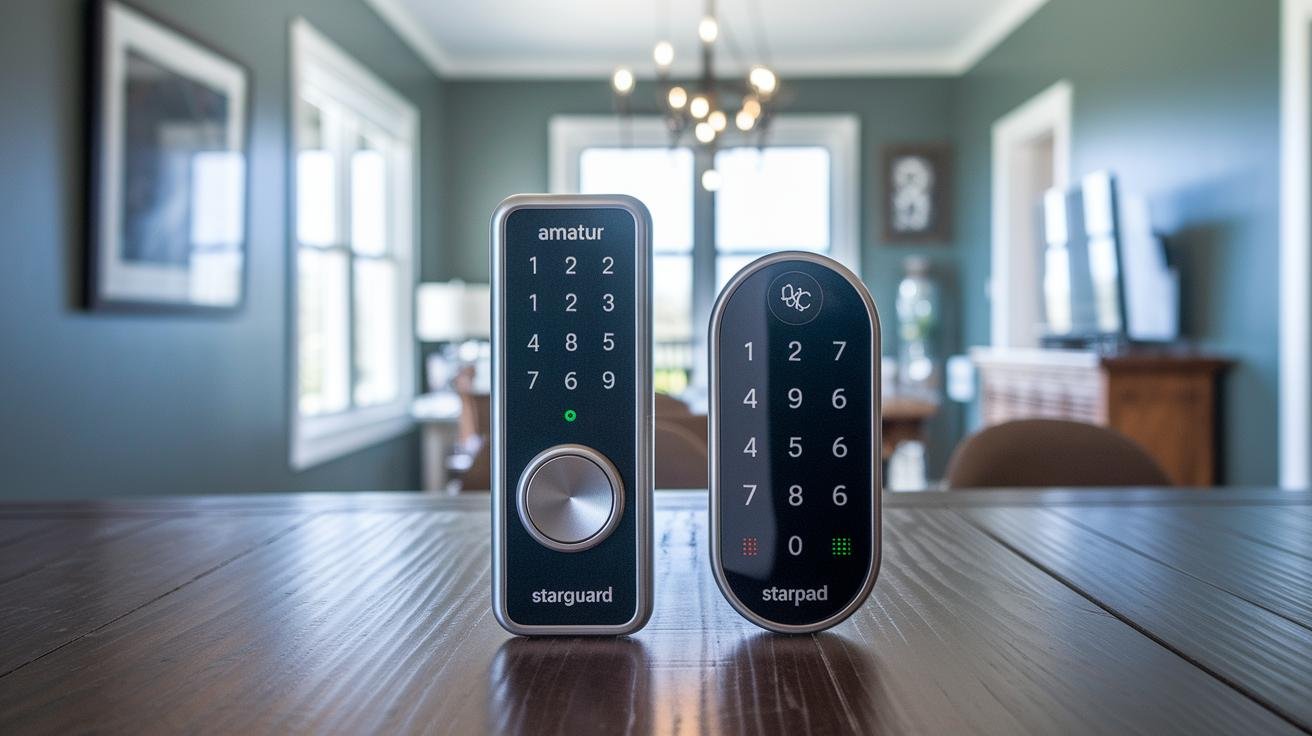
Starlight’s smart locks let you check your door from anywhere. Each one feels solid in your hand, with a smooth metal faceplate and a soft LED glow that tells you it’s ready. Want a heavy-duty bolt, a sleek touchscreen, or tap-and-go entry? We’ve got you covered.
| Model | Key Feature | Price | Battery Life |
|---|---|---|---|
| StarGuard Deadbolt | ANSI Grade 1, built-in Wi-Fi, auto-lock scheduling | $179 | 6 months |
| StarPad Keypad | ANSI Grade 2, touchscreen code entry, unlimited temporary access codes | $149 | 8 months |
| StarBio Fingerprint | Biometric fingerprint sensor (a reader that checks your unique fingertip pattern), two-factor authentication, Apple Home Key support | $199 | 5 months |
Each lock pairs commercial-grade strength with an easy guest access app that feels like a friendly handshake. Pick StarGuard Deadbolt for rock-solid protection and a reassuring click every time it locks.
Go with StarPad Keypad when you share codes with family or friends and enjoy the crisp feel of a PIN-pad press. And choose StarBio Fingerprint for tap-and-go entry. Just brush your finger and you’re inside.
Over 10,000 homes trust our locks.
Integrating Residential Remote Access Locks with Smart Home Systems
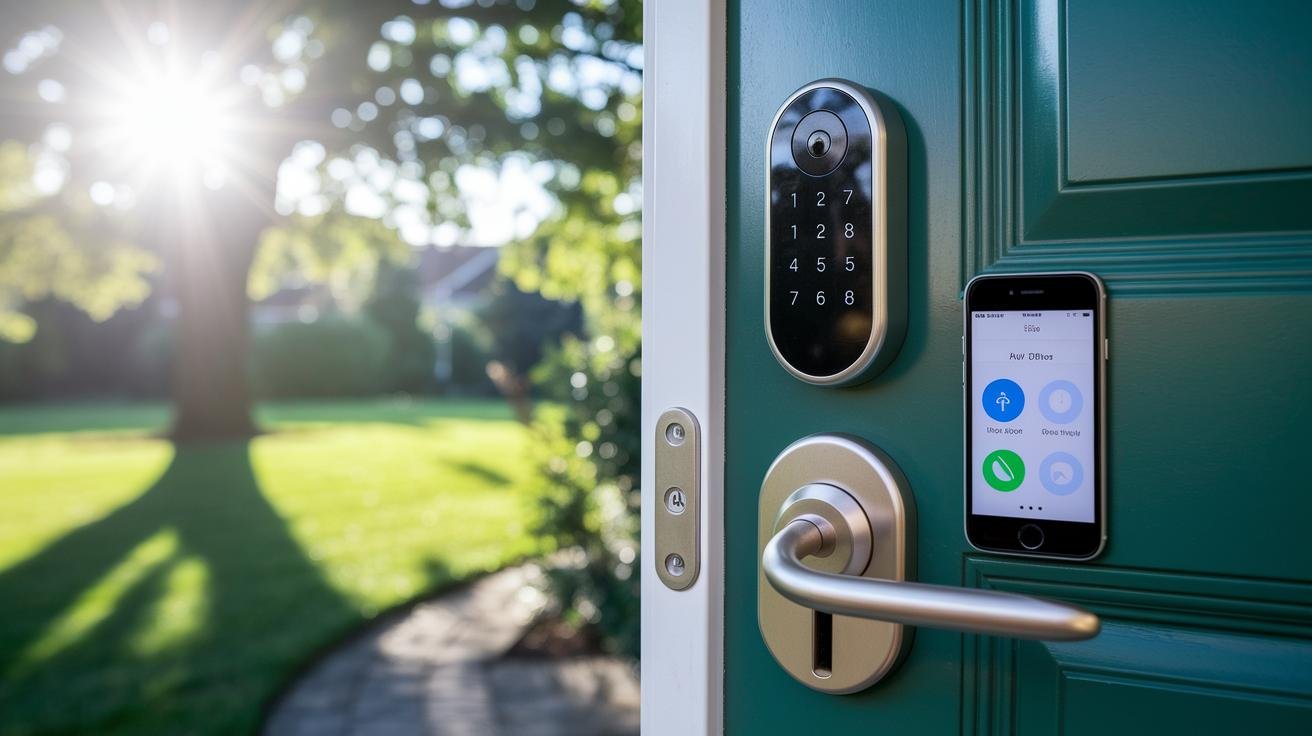
Starlight locks plug right into your favorite home-automation system. Just open the Starlight app on your phone. Tap Amazon Alexa door lock controls or Google Home door lock settings. You’ll also see Apple HomeKit door lock options. Just tap “Add Accessory” and scan the QR code on your lock.
Our locks use Matter (universal smart home standard) so they chat easily across platforms. No extra hubs for Z-Wave (a wireless smart home protocol) or Zigbee (another wireless protocol). It’s as easy as pairing your headphones. And your front door even shows a soft LED glow when it hears your voice.
And then the fun really starts. Say “Alexa, lock the front door,” or tell Google Assistant, “Secure all doors.” You can link your video doorbell with the lock so your routine flows.
When someone rings the bell, the lock waits for your thumbs-up on your phone. Then you hear a reassuring click as it opens.
Want a “goodnight” routine? One command dims lights, closes shades, and locks every door.
Two-way status updates pop into your smart home dashboard. You see real-time lock events and can review activity logs.
Geofencing (location-based lock actions) can do the heavy lifting too. Your lock clicks shut when you drive past the driveway.
Over 20 years of testing in deserts, snowy peaks, and busy city streets keep us confident in our craftsmanship. And yes, we’re CE certified. Solid.
All of this adds up to a front-door experience that feels like magic. And yet it’s just smart technology at work.
Final Words
Ready to boost home security and convenience? We covered six key factors, hardware type, encryption standard, connectivity protocol, unlocking methods, companion-app capabilities, and brand trust, alongside installation steps, security protocols, price and battery performance, troubleshooting tips, top Starlight models, and smart-home integration.
You’ve seen step-by-step setup, AES encryption benefits, battery life comparisons, and seamless pairing with Alexa, Google Home, or Apple HomeKit. With this guide, you can confidently choose the perfect residential door lock with remote access that fits your home.
Here’s to smarter entryways and peace of mind every time the door clicks shut.
